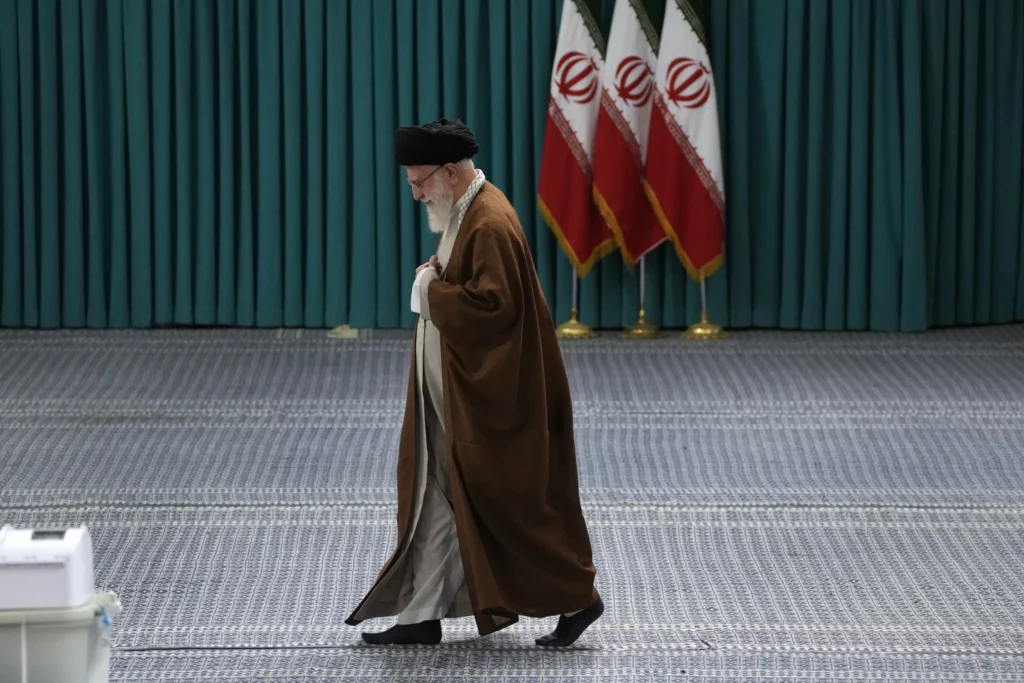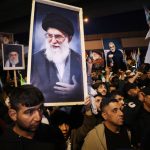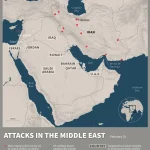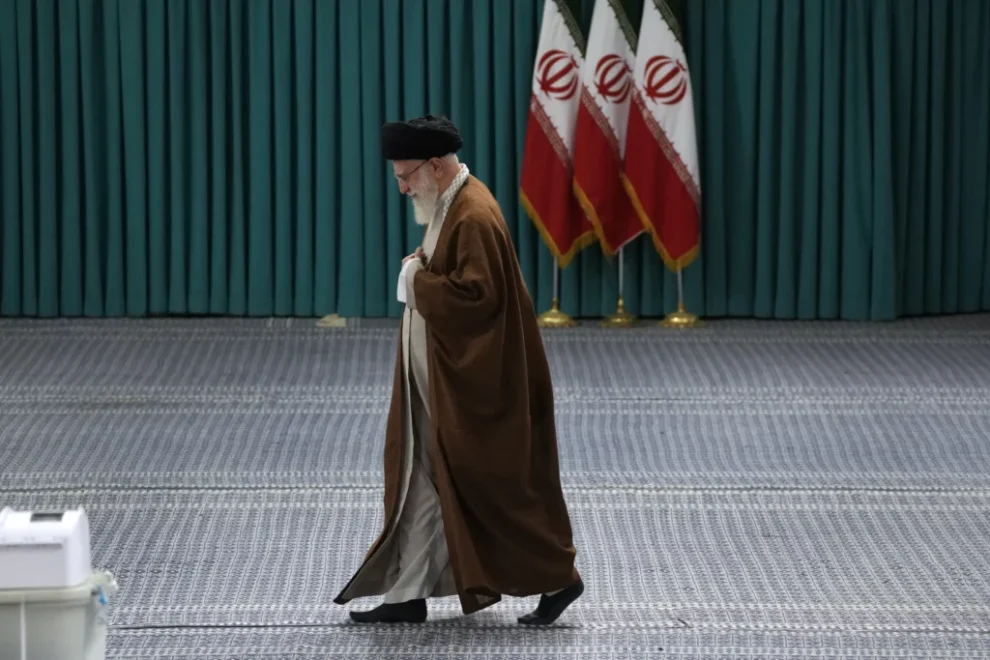Six hundred days ago, Hamas fighters launched one of the most devastating raids into southern Israel in the country’s history, leaving a scar on the country’s psyche that is still reverberating throughout the region.
Israel’s leaders have ordered the military to fight several enemies, to dismantle the network of Iranian-supported proxies seeking the destruction of the Jewish State throughout the Middle East, but in doing so has simultaneously killed tens of thousands of civilians in Gaza and Lebanon, tarnishing its image on the global stage by limiting the humanitarian aid into the strip despite concerns from experts about the conditions there.
That fateful day, Oct. 7, 2023, will be remembered as the catalyst behind all the events of the last 18 months.
Gaza
Israeli leaders maintain that their objectives in Gaza are to demilitarize Hamas and to remove the group from power in Gaza. They say those goals have not yet been met, even though Israeli forces have killed the senior leaders in charge of planning the Oct. 7 attack and decimated their ranks.
Israeli forces are believed to have killed more than 50,000 Palestinians in Gaza, though that total includes both civilians and combatants. Tens of thousands more have been injured, while nearly the entire population has been displaced within the strip, in some cases several times.
The subject of getting humanitarian aid into Gaza and the civilian toll have been subjects that date back to the early weeks of the conflict. The Biden administration, while providing Israel with billions of dollars of military equipment, also publicly urged Israel to do more to counter both concerns, which didn’t seem to make much of a difference.
President Donald Trump has said he wants to see the war end, and, during the transition period, his staff helped the outgoing administration get a temporary ceasefire agreed upon between Israel and Hamas that lasted for about eight weeks.
With little progress made in ceasefire talks, Israeli officials decided this spring that it would cut off aid to Gaza and restart ground operations, both of which were decisions made to pressure Hamas further to give in to their demands, including the release of the 58 hostages the group still holds.
It’s unclear whether negotiators have been able to bridge the gaps between their irreconcilable demands.
The president has suggested that the Palestinians in Gaza should be relocated to nearby Arab countries, but those comments were widely rebuked by the leaders of those countries, alleging that it would amount to ethnic cleansing.
Trump’s envoy, Steve Witkoff, who is leading both the Israel-Hamas and U.S.-Iran nuclear negotiations, has described the enclave as “uninhabitable” and warned that it could take more than a decade after the conflict ends permanently to rebuild the destroyed infrastructure.
Palestinian civilians are desperate for clean water, food, and medicine, but very little is coming into the strip, and even less is getting to them directly.
To get more aid to Palestinian civilians, former President Joe Biden directed the military to build a temporary port in the Mediterranean Sea to shepherd aid into Gaza via the sea and had the military airdrop aid into the strip. The port effort was mired by bad weather and poor results, ultimately ending ahead of schedule.
The Trump administration agrees that more aid needs to enter Gaza, so it devised a new plan to get aid to Palestinians that involves private contractors. The Gaza Humanitarian Foundation is leading the new effort, which began this week, though the group’s executive director, Jake Wood, resigned abruptly on Sunday, saying that the institution’s intended strategy does not adhere to “humanitarian principles.”
The group’s intent is to utilize private security contractors to transport the aid from the border to secure distribution sites, where it will be distributed to civilians directly. The first day included chaotic scenes that appear to show Palestinians overrunning the centers, with reports of Hamas trying to prevent civilians from getting to those distribution centers.
The Israeli military’s newest objective is to force all Palestinians to converge in a sliver of the enclave, about 25% of the territory, while troops occupy the remaining area and destroy any remaining terrorist infrastructure.
Iran
Iran has a constellation of allies in the Middle East that it arms and supports financially, all of whom have played some part in the region’s wars. They support Hamas, which hoped Tehran’s other proxies would simultaneously attack Israel in the immediate aftermath of Oct. 7, in addition to the Houthis in Yemen, Hezbollah in Lebanon, and militias in Iraq and Syria.
The Israeli military conducted a ground operation into southern Lebanon to destroy Hezbollah’s arsenal and end its daily cross-border missile attacks into the northern part of Israel. Israel killed several of Hezbollah’s leaders, including Hassan Nasrallah, and also decimated its ranks.
Israel and the Houthis are still engaging in tit-for-tat aerial attacks, which the Houthis have said are in response to the war in Gaza.
With Hamas, Hezbollah, the Houthis, and Iraqi and Syrian militias all having been degraded to varying extents over the past 18 months, Tehran finds itself in a much weaker position than it had prior to the Oct. 7 attack.
Iran also attacked Israel directly, twice, since the Oct. 7 attack. Both of Iran’s attacks were large bombardments of missiles and drones, which the Israelis were largely able to intercept with the help of the United States and other allies. Israel carried out a subsequent attack targeting Tehran’s air defense systems, and the success of the attack could portend a future attack.
In addition to the various conflicts that the Trump administration and Iran are on opposite sides of, they are also actively engaged in talks to limit Tehran’s nuclear program, though hurdles remain unresolved so far.
Representatives from both countries met last Friday in Rome. Omani Foreign Minister Badr bin Hamad Al Busaidi, who is acting as a mediator in the negotiations, said they had made “some but not conclusive progress.”
Iranian Foreign Minister Abbas Araghchi has made Tehran’s stance clear; it’s willing to make a deal not to pursue nuclear weapons, but is not willing to give up its nuclear facilities entirely.
While the Trump administration is pursuing diplomacy, Israeli leaders have also discussed the possibility of carrying out a military operation to destroy Iran’s nuclear capabilities. The U.S. reportedly has “new intelligence suggesting that Israel is making preparations to strike Iranian nuclear facilities,” CNN reported last week.
In light of the negotiations, Secretary of Homeland Security Kristi Noem traveled to Israel and met with Prime Minister Benjamin Netanyahu.
The two leaders “had a conversation about President Trump’s negotiations with Iran,” she said during a Fox & Friends interview on Monday. She added, “President Trump specifically sent me here to have a conversation with the prime minister about how those negotiations are going and how important it is that we stay united and let this process play out.”

“The prime minister’s team had a conversation afterwards with us that they don’t remember a bilateral meeting that was quite candid and direct, and about how we really felt about the importance of Israel, our support for Israel, but that this negotiation was critically important too. We’re on a short time frame here as well,” she added. “We aren’t talking weeks and months and years before President Trump will make a decision on what’s going to happen with Iran. They’ve been given a very short time frame, a matter of days, and I asked the prime minister to work with President Trump to make sure that we’re making wise decisions together.”
Noem’s comments represent the stark reality that while Trump was expected to be a more pro-Israel president than his predecessor, he has done that in the confines of supporting his own agenda, which is not always aligned with Israel’s perceived interests, such as negotiating with Iran over its nuclear program.
White House press secretary Karoline Leavitt also said last week that Trump had “made it very clear” to Netanyahu during their most recent phone call that he wants a deal with Iran, rather than “the more severe and negative option.”
Israel’s global standing
Israel received widespread international support in the immediate aftermath of the Oct. 7 attack, including from the Biden administration.
Over the last 18 months, however, the way Israel has conducted its war in Gaza has ruffled the feathers of several international leaders, who have argued Israel has a responsibility to do more to prevent civilian casualties, while also calling on it to do more to ensure humanitarian aid gets to Palestinian civilians.
France, the United Kingdom, and Canada released a joint statement last week that condemned the Israeli government in unequivocal language over the limited rate of aid distribution to Palestinians in Gaza, the expansion of Israeli settlements, and the continued military attacks on the war-torn strip.
Israeli leaders have argued that Hamas has commandeered aid meant for civilians, and that efforts are needed to ensure that doesn’t happen.
German Chancellor Friedrich Merz said on Tuesday that recent Israeli airstrikes in Gaza “no longer reveal any logic to me,” adding, “What is currently happening is no longer comprehensible.”
The country’s foreign minister, Johann Wadephul, warned that Berlin is “now at a point where we have to think very carefully about what further steps to take.”
Israel’s opponents have accused it of carrying out a genocide against the Palestinians, which Israel and its supporters ardently argue against, often citing the difficulties of urban warfare and Hamas’s entrenchment in and around civilian areas.
UKRAINE BRACES FOR MASSIVE SUMMER ESCALATIONS AS RUSSIA PEACE TALKS HIT AN IMPASSE
Last November, the International Criminal Court announced it was seeking arrest warrants for Netanyahu and former Israeli defense minister Yoav Gallant because the court had “reasonable grounds to believe” that they “each bear criminal responsibility for the following crimes as co-perpetrators for committing the acts jointly with others: the war crime of starvation as a method of warfare; and the crimes against humanity of murder, persecution, and other inhumane acts.”
The U.S. has denounced the ICC for the arrest warrants, and lawmakers have sought to impose punishments on the court.
























